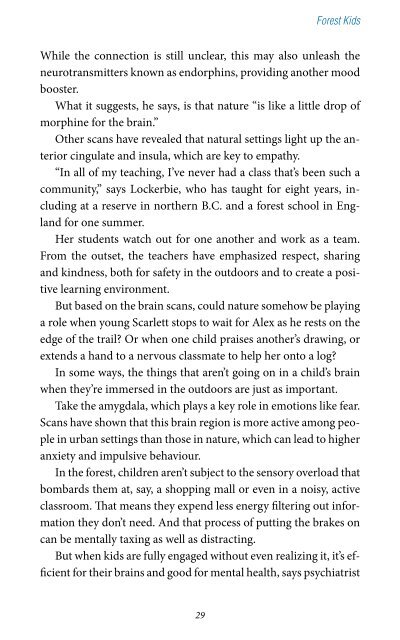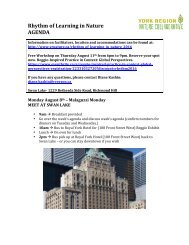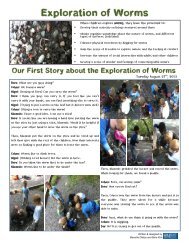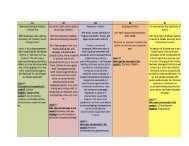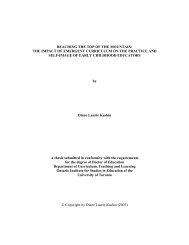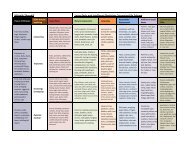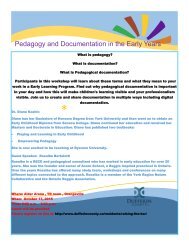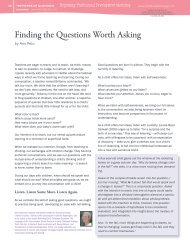Forest Kids
Create successful ePaper yourself
Turn your PDF publications into a flip-book with our unique Google optimized e-Paper software.
<strong>Forest</strong> <strong>Kids</strong><br />
While the connection is still unclear, this may also unleash the<br />
neurotransmitters known as endorphins, providing another mood<br />
booster.<br />
What it suggests, he says, is that nature “is like a little drop of<br />
morphine for the brain.”<br />
Other scans have revealed that natural settings light up the anterior<br />
cingulate and insula, which are key to empathy.<br />
“In all of my teaching, I’ve never had a class that’s been such a<br />
community,” says Lockerbie, who has taught for eight years, including<br />
at a reserve in northern B.C. and a forest school in England<br />
for one summer.<br />
Her students watch out for one another and work as a team.<br />
From the outset, the teachers have emphasized respect, sharing<br />
and kindness, both for safety in the outdoors and to create a positive<br />
learning environment.<br />
But based on the brain scans, could nature somehow be playing<br />
a role when young Scarlett stops to wait for Alex as he rests on the<br />
edge of the trail? Or when one child praises another’s drawing, or<br />
extends a hand to a nervous classmate to help her onto a log?<br />
In some ways, the things that aren’t going on in a child’s brain<br />
when they’re immersed in the outdoors are just as important.<br />
Take the amygdala, which plays a key role in emotions like fear.<br />
Scans have shown that this brain region is more active among people<br />
in urban settings than those in nature, which can lead to higher<br />
anxiety and impulsive behaviour.<br />
In the forest, children aren’t subject to the sensory overload that<br />
bombards them at, say, a shopping mall or even in a noisy, active<br />
classroom. That means they expend less energy filtering out information<br />
they don’t need. And that process of putting the brakes on<br />
can be mentally taxing as well as distracting.<br />
But when kids are fully engaged without even realizing it, it’s efficient<br />
for their brains and good for mental health, says psychiatrist<br />
29


